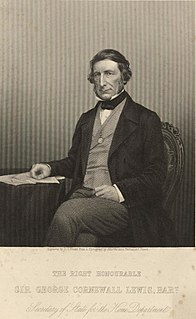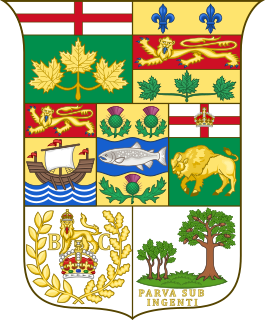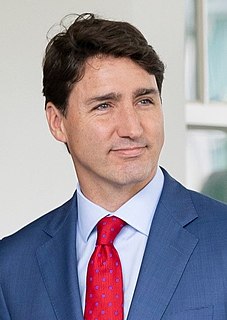External links
| Positions | |||||
|---|---|---|---|---|---|
| Membership |
| ||||
| Committees of the Privy Council |
| ||||
| Other | |||||
| See also | |||||
This is a list of 20 longest-serving current members of the Privy Council of the United Kingdom.

The Judicial Committee of the Privy Council (JCPC) is the highest court of appeal for certain British territories, some Commonwealth countries and a few UK bodies. Established on 13 August 1833 to hear appeals formerly heard by the King-in-Council, the Privy Council formerly acted as the court of last resort for the entire British Empire, and continues to act as the highest court of appeal for several independent Commonwealth nations, the Crown Dependencies, and the British Overseas Territories.
Law is the set of rules and principles (laws) by which a society is governed, through enforcement by governmental authorities. Law is also the field that concerns the creation and administration of laws, and includes any and all legal systems.

The Privy Council of the United Kingdom, officially His Majesty's Most Honourable Privy Council, or known simply as the Privy Council (PC), is a formal body of advisers to the Sovereign of the United Kingdom. Its membership mainly comprises senior politicians who are current or former members of either the House of Commons or the House of Lords.

The Right Honourable is an honorific style traditionally applied to certain persons and collective bodies in the United Kingdom, the former British Empire and the Commonwealth of Nations. The term is predominantly used today as a style associated with the holding of certain senior public offices in the United Kingdom, Canada, New Zealand, and to a lesser extent, Australia.

The King's Privy Council for Canada, sometimes called His Majesty's Privy Council for Canada or simply the Privy Council (PC), is the full group of personal consultants to the monarch of Canada on state and constitutional affairs. Practically, the tenets of responsible government require the sovereign or his viceroy, the governor general of Canada, to almost always follow only that advice tendered by the Cabinet: a committee within the Privy Council composed usually of elected members of Parliament. Those summoned to the KPC are appointed for life by the governor general on the advice of the prime minister of Canada, meaning that the group is composed predominantly of former Cabinet ministers, with some others having been inducted as an honorary gesture. Those in the council are accorded the use of an honorific style and post-nominal letters, as well as various signifiers of precedence.
A privy council is a body that advises the head of state of a state, typically, but not always, in the context of a monarchic government. The word "privy" means "private" or "secret"; thus, a privy council was originally a committee of the monarch's closest advisors to give confidential advice on state affairs.

In the Canadian cabinet, the president of the King's Privy Council for Canada is nominally in charge of the Privy Council Office. The president of the Privy Council also has the largely ceremonial duty of presiding over meetings of the Privy Council, a body which only convenes in full for affairs of state such as the accession of a new Sovereign or the marriage of the Prince of Wales or heir presumptive to the Throne. Accordingly, the last time the president of the Privy Council had to preside over a meeting of the Privy Council was in 1981 on the occasion of Charles, Prince of Wales' engagement to Lady Diana Spencer. It is the equivalent of the office of lord president of the council in the United Kingdom.

The Privy Council Office is the central agency of the Government of Canada which acts as the secretariat to the Cabinet of Canada – a committee of the King's Privy Council for Canada – and provides non-partisan advice and support to the Canadian ministry, as well as leadership, coordination, and support to the departments and agencies of government.

The minister of transport is a minister of the Crown in the Canadian Cabinet. The minister is responsible for overseeing the federal government's transportation regulatory and development department, Transport Canada, as well as Canada Post, the Saint Lawrence Seaway, Nav Canada, and the Port Authority system. Since 12 January 2021, the position has been held by Omar Alghabra of the Liberal Party.
The Privy Council of Northern Ireland is a formal body of advisors to the sovereign and was a vehicle for the monarch's prerogative powers in Northern Ireland. It was modelled on the Privy Council of Ireland.

The 7th Canadian Parliament was in session from April 29, 1891, until April 24, 1896. The membership was set by the 1891 federal election on March 5, 1891. It was dissolved prior to the 1896 election.
In India, a privy purse was a payment made to the ruling families of erstwhile princely states as part of their agreements to first integrate with India in 1947 after the independence of India, and later to merge their states in 1949, thereby ending their ruling rights.
His or Her Majesty's Privy Council in Ireland, commonly called the Privy Council of Ireland, Irish Privy Council, or in earlier centuries the Irish Council, was the institution within the Dublin Castle administration which exercised formal executive power in conjunction with the chief governor of Ireland, who was viceroy of the British monarch. The council evolved in the Lordship of Ireland on the model of the Privy Council of England; as the English council advised the king in person, so the Irish council advised the viceroy, who in medieval times was a powerful Lord Deputy. In the early modern period the council gained more influence at the expense of the viceroy, but in the 18th century lost influence to the Parliament of Ireland. In the post-1800 United Kingdom of Great Britain and Ireland, the Irish Privy Council and viceroy Lord Lieutenant had formal and ceremonial power, while policy formulation rested with a Chief Secretary directly answerable to the British cabinet. The council comprised senior public servants, judges, and parliamentarians, and eminent men appointed for knowledge of public affairs or as a civic honour.

The Privy Council of England, also known as HisMajesty's Most Honourable Privy Council, was a body of advisers to the sovereign of the Kingdom of England. Its members were often senior members of the House of Lords and the House of Commons, together with leading churchmen, judges, diplomats and military leaders.

The Twenty-Ninth Canadian Ministry is the Cabinet, chaired by Prime Minister Justin Trudeau, that began governing Canada shortly before the opening of the 42nd Parliament. The original members were sworn in during a ceremony held at Rideau Hall on November 4, 2015. Those who were not already members of the King's Privy Council for Canada were sworn into the Privy Council in the same ceremony. The Cabinet currently consists of 35 members including Trudeau, with 17 women and 18 men. When the ministry was first sworn in, with fifteen men and fifteen women, it became the first gender-balanced cabinet in Canadian history.
The national seals of Japan comprise the following emblems used for the purpose of authentication by the Emperor and government of Japan: